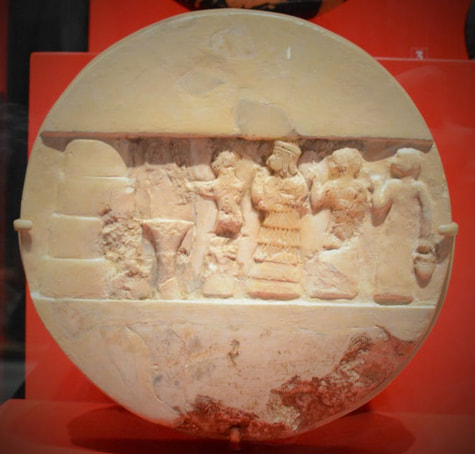Call for Papers: Professional Women of the Ancient World - an AWAWS Sponsored Panel for ASCS 4217/8/2020 ‘A woman’s work is never done,’ whether in a Postmodern Pandemic, 1950s Australia or Classical Antiquity. What was that work, however, and when was it considered a ‘profession’ or even ‘work’ in Antiquity (by the worker, her family, and/or her society)? Recent research is casting new light on paid and unpaid work that ancient women undertook outside of the household oikos, domus or villa context in the ancient Mediterranean world. The 10th muse Sappho continues to attract attention (and somehow publish new work!), as do her lesser-known sisters of the lyre and pen like Erinna, Anyte or Sulpicia (1). The ‘working women’ of the oldest profession gain renewed notoriety, whether Aspasia as the ‘secret’ muse of Socrates and originator of western philosophy in Classical Athens (2), or the mostly-anonymous sex workers of Pompeii (3). Even in arts and crafts, we are slowly recognizing the ‘mass production’ of garland weavers, wool-workers (4), or female potters like the potential creator of the Dipylon Vase (5). Major challenges to this sort of scholarship remain, however, not only in the extant literary and archaeological evidence, but also in the unpacking of historic and contemporary gender (and other) biases and stereotypes, value-judgments and judgments of value. Ancient and modern definitions of ‘working women’ were, and are, neither static nor uniform, but worthy of study and questioning, whether of their professionalisation and the earning of wages, their public and private spheres, or across all the disparate categories of paid, unpaid and servile labor, labor, douleia, scholê orneg(otium) of ancient Greece and Rome. Australasian Women in Ancient World Studies invites the submission of abstracts for a panel at ASCS 42 on professional women of the Ancient World. Abstracts in the ASCS format should be sent in the first instance to the panel convenor Amelia R. Brown at [email protected] by August 21, 2020, so she can prepare a panel submission by August 31 for ASCS 42 Online. Works cited:
Image sourced from Pryke, L. 'Hidden women of history: Enheduanna, princess, priestess and the world’s first known author' The Conversation. February 13, 2019.
0 Comments
Your comment will be posted after it is approved.
Leave a Reply. |
Categories
All
About this pageFind all of our latest news and announcements including upcoming events, new research and local chapter updates. Archives
June 2024
|

 RSS Feed
RSS Feed